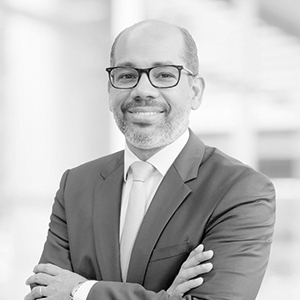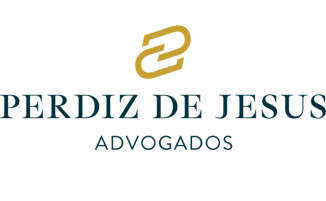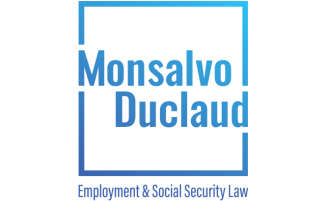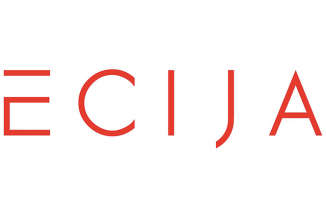Gabriel Dejarden, member of the executive committee of ECIJA, discusses the legal trends in the Dominican Republic, and the firm’s role in Latin America
What new legal trends or regulatory changes are you seeing emerge in the Dominican Republic?
Firstly, I would like to thank you for the opportunity to engage with you and your readers. In the proptech area, we are seeing efforts from the Dominican government to somehow regulate online marketplaces for short and long-term homestays and experiences. Our impression so far is that the aim of these new rules would be to ‘level the playing field’ with traditional hotels which are required to obtain permits from the Ministry of Tourism and other institutions to carry out their activities. It remains to be seen whether these platforms and/or their clients will also need to make new tax payments or observe new fiscal rules.
In the TMT sector, there has been talk for a while to tax online marketplaces and streaming services with VAT, which is 18% in the Dominican Republic. Such proposed measures have been referenced in budgets prepared by the Dominican government, but so far, no regulation or statute has been approved towards this end. We believe that such a measure could potentially be approved in the context of a comprehensive tax reform bill or a stand-alone regulation after a new presidential term begins on 16 August 2024. Moreover, it is worth mentioning in this area, that the Ministry of Industry, Commerce and Medium and Small Business together with the World Intellectual Property Organization recently commissioned and published the first diagnostic study of the local video game industry. This shows a clear intent from the government to diversify existing industries, create new jobs that provide higher added value and that would involve the payment of higher wages. The next step in this area could possibly be the creation of new regulations that would foster the growth of the video game industry, perhaps similar to the very successful tax incentives currently available for the movie industry. We also anticipate, given the study’s conclusions, that changes to the Dominican Republic Industrial Property statute might be on the horizon. Lastly, in this area it should be noted that the Dominican Republic government policy makers are paying attention to the recent trend to ‘nearshore’ the manufacturing of semiconductors found in automative parts, medical devices, manufacturing, and information technology. A leading study from the Information Technology & Innovation Foundation published on 29 January 2024, considers the Dominican Republic as ‘the most attractive business environment in Latin America’ and a ‘leading candidate for nearshored investments in advanced manufacturing activity particularly for electronics such as printed circuit boards and the assembly, test, and packaging of semiconductors’. We anticipate that policy-makers would likely try to channel these investments to our country through the existing and very successful Free Zone Regime under law 8-90, which among other incentives, exempts businesses from the payment of customs duties and income tax, which is 27% in the Dominican Republic.
In the labour area, we are seeing a firmer enforcement of the 80/20 rule, which requires that at least 80% of a company’s workforce be Dominican. Moreover, the creation of the health and security committees has become more important as employees are demanding their implementation and are frequently suing for damages when they are absent. Lastly on this aspect, it should be noted that the government is seeking the approval of a new law to govern teleworking and that we have seen more efforts from multinationals to ensure local labour compliance, perhaps motivated in part by the decision of the US Customs and Border Protection (CBP) to issue, for the first time, a Withhold Release Order against a major corporation operating in the Dominican Republic. To justify the measure, CBP acting commissioner Troy Miller asserted that ‘this Withhold Release Order demonstrates CBP’s commitment to protect human rights and international labour standards and to promote a fair and competitive global marketplace’.
In the tourism area, the government continues to encourage the creation of a new tourism pole in Pedernales in the Dominican Republic’s ‘deep south’. To this end, the government is creating new infrastructure, which already includes a new cruise port known as ‘Port Cabo Rojo’ and is set to include a new international airport, new roads, etc. The government is also seeking to create the ‘Corporación Turística Cabo Rojo’ a private corporation that will be in charge of developing and administering the services, hotel and commercial infrastructure of this new tourism area, including public and private investments.
In the financial services sector, a very interesting new development is the recent ratification by the National Congress of the Agreement for the Promotion and Protection of Investments signed by the OPEC Fund for International Development (OPEC Fund) and the Dominican Republic. This new instrument creates a new financing window for projects in our country through loans, equity participations and other forms of investments defined by the treaty. The agreement is to be managed by two representatives of the OPEC Fund and two representatives of the Dominican Republic government. It is also worth noting that the agreement contemplates the creation of an ‘investment ombudsman’, which shall be located at Prodominicana, the local government agency in charge of the promotion of foreign investment into the Dominican Republic.
What can you tell us about ECIJA, its Latin American Strategy and the different roles you serve within the firm?
ECIJA is the Ibero-American firm with the largest presence in Latin America and is a key player in the Dominican market.
We currently have 35 offices spread across 17 jurisdictions (Dominican Republic, Puerto Rico, Spain, Portugal, Mexico, Guatemala, Honduras, El Salvador, Nicaragua, Costa Rica, Panama, Colombia, Ecuador, Chile, Argentina, Uruguay, and Brazil), staffed by more than 1,000 attorneys. We speak more than 20 languages and aim to serve the sophisticated legal needs of businesses and individuals through a full-service practice. The firm has been recognised by leading international directories and magazines such as Chambers & Partners, Legal 500, IFLR 1000, Expansión and the Financial Times.
Our Santo Domingo office has represented clients in some of the most significant projects in the Dominican Republic, such as the local implementation of:
i. the acquisition of Flora Food Group by KKR (formerly Kohlberg Kravis Roberts & Co) for more than US$8bn; and
ii. the sale of the infusion therapies business by Pfizer to ICU Medical for US$1bn.
We have also represented the World Bank, the Central American Bank for Economic Integration, the International Labour Organization, and the European Union.
In terms of our Latin American strategy, the firm in essence aims to grow its presence in the region to eventually cover all Latin American countries. To streamline our growth, the firm has set up an internal governance structure which divides Latin America into two subregions: Northern Latin America (NOLA) and Southern Latin America (SOLA). The NOLA region is headed by Ricardo Chacón, managing partner of our office in Mexico, and the SOLA region by Gonzalo Gonzalez, managing partner of our offices in Ecuador. These leaders coordinate all our business planning and integration efforts within their respective subregions and help also define the firm’s overall strategy together with the firm’s 16-member executive committee. As a member of the executive committee, I have been tasked with various responsibilities over time, which have included the search of candidate firms to join ECIJA, and the organisation of the firm’s last annual partners’ meeting together with Alejandro Touriño, managing partner of our office in Madrid. At present the role includes the appointment to a subcommittee of the executive committee in charge of fostering relationships with law firms in the US.
I am personally very fond of this jurisdiction, as I completed my LLM in Georgetown Law, in Washington DC in 2003, and have remained in close contact with US colleagues throughout the years, thanks in part to the volunteer work I perform for the American Bar Association International Law Section. Moreover, given our firm’s geographic footprint, full-service capabilities, industry expertise and scale, we feel that we are uniquely positioned to assist US and other international firms with large regional mandates throughout Latin America and Iberia. We strive to seamlessly deliver a standardised high-quality product, through a single point of contact, using industry leading technology and legal project management tools. I share this role with other administrative duties I have within our firm’s Dominican office.
For more information, please contact:

Gabriel Dejarden, partner and
member of the executive committee
ECIJA
Calle Rafael Augusto Sánchez Nº86
Torre Roble Corporate Center, First Floor
Suite 201d, Piantini, Santo Domingo
10148, Dominican Republic
T: +1 (809) 289-2343
C: +1 (829) 988-8888
E: gdejarden@ecija.com
www.ecija.com
















